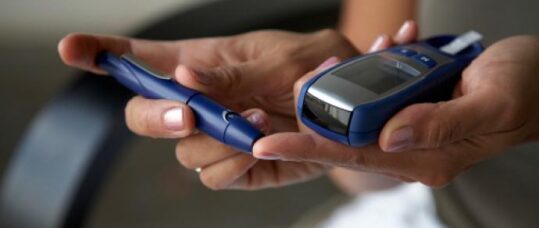Cost of drugs for diabetes approaches £1 billion every year

The net ingredient cost (NIC) of drugs for diabetes has increased by £88 million in 2015/16, according to new figures.
This has brought the annual primary care prescribing spend on this drug classification to £956.7 million – amounting to around £2.6 million per day and 10.6% of the total cost of all primary care prescribing in England.
Also, it is almost double the cost of diabetes prescribing a decade ago, when it was £513.9 million, or 6.6% of the overall spend.
Related Article: Diagnosis Connect service will link people to advice from charities
Of all CCGs in England, Newham CCG spent the highest percentage of their total prescribing budget, 17.9%, on drugs used in diabetes maintenance.
Newham also had the highest percentage in England for diabetes drug items dispensed, at 9.0% of its overall number of drug items dispensed.
NHS Digital’s report, Prescribing for Diabetes 2005/06 to 2015/16, also shows that in the last financial year, 49.7 million prescription items for all diabetes subtypes were dispensed in England.
Since 2007/08, the British National Formulary classification, ‘Drugs used in diabetes’, has accounted for the highest cost of all drug sections, while the number of prescription items dispensed in this category has also increased every year since 2005/06.
This is in line with a steady increase year-on-year in the percentage of the population being treated for diabetes.
On a national level, the 2014/15 Quality and Outcomes Framework (QOF) report shows that the average percentage of all GP-registered patients, aged 17 and over, in England, being treated for diabetes has increased from 5.3% in 2009/10 to 6.4% in 2014/15.
Related Article: Be alert to pancreatitis in patients using GLP-1 weight-loss drugs
This means in 2014/15 there were 2.9 million adults in England receiving treatment for diabetes.
The NIC per person in 2015/16, on the QOF diabetes register of 2014/15, ranged from £415.3 (NHS Warwickshire North) at the highest, to £238.7 (NHS Northumberland CCG) at the lowest.
Of the three main diabetes treatment areas in primary care for 2015/16, prescribed antidiabetic drugs cost the NHS £422.7 million, prescribed insulin cost the NHS £343.7 million, and prescribed diagnostic and monitoring devices cost the NHS £186.6 million.
Helen Donovan, Royal College of Nursing public health professional lead, said: “These stark figures show the need for a greater focus on preventing type 2 diabetes. There is a close association between the increase in obesity and type 2 diabetes and the prevention of both is essential. Encouraging healthier lifestyles would not only save the NHS money, it would improve countless lives.
Related Article: Low-energy diet improved eating disorder symptoms in patients with type 2 diabetes
“As with other long-term conditions, people with diabetes deserve the right support to properly manage their condition and avoid complications. Nurses play a big role in this, particularly working in the community, but cuts in this area mean many patients are missing out on this vital support.
“This is bad for the health service’s finances but more importantly it can be devastating for patients.”

See how our symptom tool can help you make better sense of patient presentations
Click here to search a symptom


The net ingredient cost of drugs for diabetes has increased by £88 million in 2015/16



